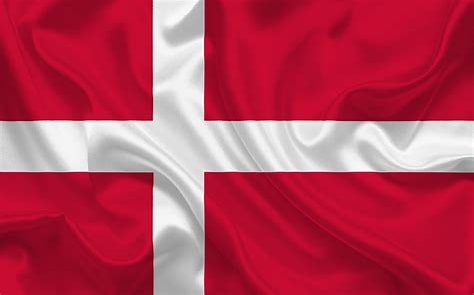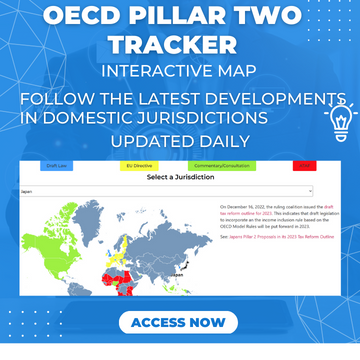Therefore any gain or loss recognised for accounting purposes would also flow through into the GloBE income calculation.
The acquiring entity may recognise goodwill (if the consideration paid is higher than the fair value) or a bargain purchase gain (also known as negative goodwill which arises where the fair value of the assets is higher than the consideration paid on paid) on the acquisition.
Goodwill is typically recognised as an asset on the balance sheets.
Future amortisation of the Goodwill is permitted as a cost for GloBE purposes providing it is reflected in the financial statements.
The treatment of negative goodwill varies on the accounting standard, but for example, under FRS, IFRS 3 and US GAAP, negative goodwill is recognized as a gain on acquisition in the income statement.
It is not taken to the P&L as it is reduced from the value of the assets acquired.
This is also confirmed in Article 2.1.2 of the OECD Administrative Guidance which provides that the arm’s length principle applies irrespective of whether the MNE Group accounts for transactions between constituent entities at the disposing constituent entity’s carrying value rather than based on fair value.
Example – Negative Goodwill
If a company purchased assets for 10 million that had a market value of 15 million, the initial accounting entry would be:
Dr Fixed Assets (Balance Sheet) 15 million
Cr Consideration paid (cash etc – Balance Sheet) 10 million
Cr Gain on acquisition 5 million
There is then a further entry of:
Dr Negative Goodwill (Balance Sheet) 5 million
Cr Assets (Balance Sheet) 5 million
For Pillar Two GloBE purposes, the 5 million gain on acquisition is recognized providing it is reflected in the acquiring entity’s financial statements.
GloBE Reorganisation
Given many domestic tax regimes permit gains and losses to be deferred on intra-group transfers, Article 6.3.2 of the OECD Model Rules include a similar rule which applies where there is a ‘GloBE Reorganisation’.
A Globe Reorganisation occurs where there is a transfer of assets and:
(a) the consideration for the transfer is, in whole or in significant part, equity interests
(b) the transferors gain or loss on the assets is not wholly or partly subject to tax; and
(c) the tax law applicable to the transferee entity requires them to use the transferor’s tax base as the carrying value of the assets (the so-called ‘stand in the shoes’ principle).
This means that the transferor jurisdiction must provide for the tax-free deferral of the gain and the base cost is not uplifted in the transferee jurisdiction.
The Pillar Two Commentary notes that while this will generally be the case for purely domestic transactions it will not always be the case for international transactions.
Where there is an intra-group transfer of assets that doesn’t meet these requirements, it is treated as a ‘non-qualifying gain or loss’ and needs to be recognised in GloBE income (or loss).
Similarly, the carrying value of the assets is uplifted for calculating depreciation and amortization etc.
If only part of the gain is qualifying, only that part qualifies as a qualifying gain for GloBE purposes.
Domestic jurisdictions frequently permit deferrals of gains where the consideration is solely in shares or other securities and restrict it where part of the sales price is paid in cash.
In such a case, the element of the gain that was attributable to the cash consideration would be included as GloBE income.
Purchase Accounting Adjustments
Deferred tax adjustments can also be reflected in the consolidated financial statements.
In the case of an intra-group transfer of assets the Pillar Two rules generally recognise them providing they don’t relate to a qualifying gain or loss from a GloBE reorganisation.
In many jurisdictions, the tax computation is based on the separate financial accounts of group entities rather than the consolidated accounts.
Therefore, if an asset arises on consolidation its tax base will be nil as the asset is not recognised for tax purposes and there would be no tax deduction for any amortisation.
This results in a temporary difference equal to the initial carrying value in the consolidated financial accounts.
On creation, the deferred tax liability would not impact the accounting tax figure as the entry would be to goodwill (ie Dr Goodwill, Cr Deferred Tax Liability). Therefore, there would be no impact on GloBE covered taxes on creation.
As the goodwill is amortised the deferred tax liability is unwound and there would be a credit to the profit and loss account (Dr Deferred Tax Liability, Cr Deferred Tax P&L) that would offset the amortisation in the accounts.
In most cases, purchase accounting adjustments are not recognised in the Pillar Two rules, but they are in the case of an intra-group transfer of assets (to the extent it is not a GloBE reorganisation).
Deemed Disposal of Assets
In some jurisdictions there can be a deemed disposal of assets.
This occurs in the UK for instance where a company migrates by changing its treaty residence.
In other jurisdictions it can apply on an ‘immigration’ (ie where a company becomes tax resident in a jurisdiction).
In general, the company is treated as though it had disposed of and immediately reacquired its assets. This could crystallise gains or losses on its assets and would uplift the base cost of the assets to the market value for tax purposes.
Note that deferred tax arising in this case (ie a difference between the carrying value of assets for tax and financial accounting purposes) is recognised for Pillar Two purposes.
Article 6.3.4 of the OECD Pillar Two Model Rules allow an MNE Group to make an election to reflect the domestic tax treatment.
The taxable gain or loss is recognised and the carrying value of its assets for GloBE purposes are adjusted (increased where there is a gain).
The gain or loss can either be included in the GloBE income or loss in the year the gain or loss occurred or spread equally over five years.
















